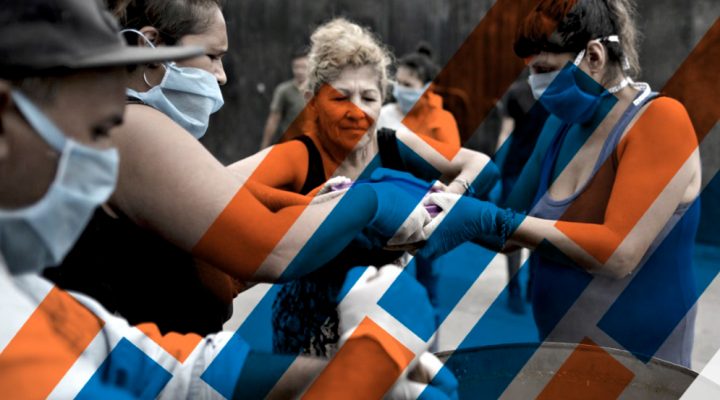SOCIAL SCIENCES AND HUMANITIES
A project that revalues and makes visible the work undertaken by social organizations during the pandemic
The CEUR-CONICET participates in a collaborative mapping of associative spaces that currently respond to the social and health crisis during the pandemic.
The emergence of COVID-19 in Argentina exposed the problems and needs of the most deprived groups. However, this situation also exposed the solidarity and effort of hundreds of social, neighborhood and community organizations whose members fully devote themselves to help. These organizations have strengthened and now play a vital role in the actions against the social and health crisis caused by the coronavirus.
In order to make visible these actions, the Centro de Estudios Urbanos y Regionales (CEUR-CONICET),the Observatorio del Conurbano of the Universidad Nacional de General Sarmiento (UNGS) and FLACSO-Argentina lead the initiative “Territorios en acción: Las organizaciones sociales hacen frente a la pandemia” [Territories in action: The social organization against the pandemic]. The project is supported by the ‘Laboratorio de Aceleración del PNUD Argentina and the CENOC of the ‘National Ministry of Social Development.’
“The aim of this initiative is to build a national collaborative map that exposes the actions performed by associative spaces to respond to the social and health crisis in the pandemic. This map is periodically updated and has different filters and iconographies for those who want to have access to the information, which is public and has free access,” explains Dr. Paula Rosa, researcher at the CEUR-CONICET, and one of the coordinators of the project. The initiative is also led by Dr. Adriana Rofman of the Observatorio del Conurbano of the UNGS, and Dr. Agustina Gradin of the Programa de Organizaciones de la Sociedad Civil of FLACSO-Argentina.
From the data collected in the online form completed by the social organizations, the map is built and updated in “Territorios en acción”. For this reason, we “make a call to contribute to the collective development of the map so as to show all social initiatives and daily work undertaken in this circumstance,” Rosa explains.
The map, the information and database that is being developed will be very useful to take actions during the pandemic and and in the next period of reconstruction. At an international level, the data obtained will provide Argentine information to the global platform SOLIVID during the pandemic.
So far, 500 organizations from different parts of the country have completed the form.
“In general terms, social organizations act as the primary support for deprived people and families because they provide assistance to guarantee the satisfaction of basic needs. So they become relevant actors to “face” the pandemic, but also key to contribute from their “know-how” and to the near future,” comments the coordinator.
In this sense, the help and support of the organizations to the most vulnerable areas consist in food assistance (delivery of food, soup kitchen) but there are also other initiatives linked to education, prevention, culture, production, sanitary distribution. Likewise, there are actions performed for specific groups such assistance for the elderly, children and adolescents, trans people and people living on the streets, comments the coordinator project.
Currently, different academic institutions, public and private organizations have established links to strengthen the initiative and disseminate at the national level. “This is central because as a collaborative and participatory project, there can be a network of adherent institutions that can appropriate the mapping of organizations in their own territories and lead the construction of “bottom up” information that allows us to show the effort that civil society organizations have been making during the pandemic,” concluded Dr. Paula Rosa.
To contact the initiative:
To have access to the survey click HERE
Contact: territoriosenaccion@gmail.com
Website: www.territoriosenaccion.org
Social networks:
https://www.facebook.com/territoriosenaccion
